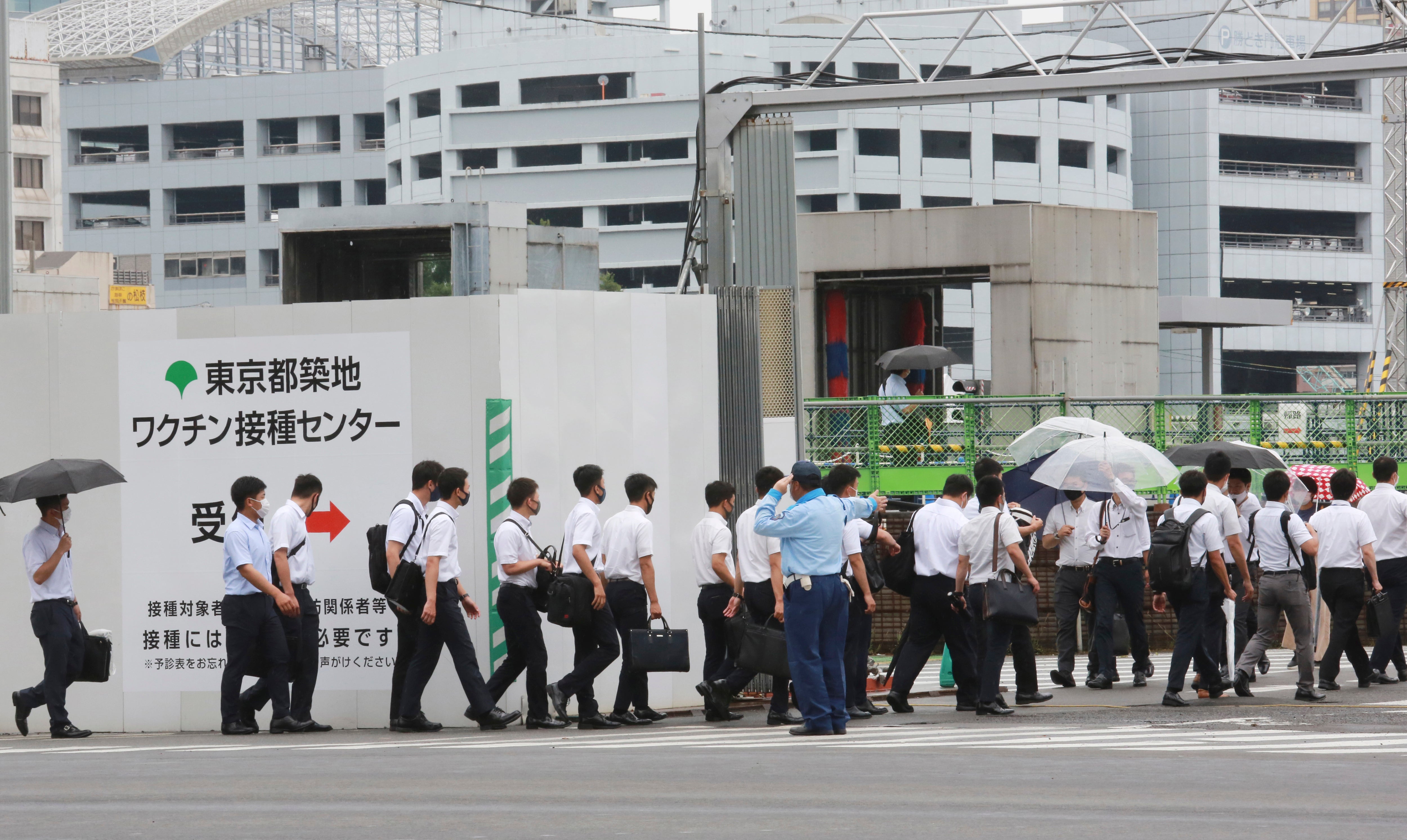Japan looks to ease virus emergency ahead of Olympics
Japan is expected to ease a coronavirus state of emergency in Tokyo and most other areas this weekend, with new daily cases falling just as the country begins making final preparations for the Olympics starting in just over a month

Your support helps us to tell the story
From reproductive rights to climate change to Big Tech, The Independent is on the ground when the story is developing. Whether it's investigating the financials of Elon Musk's pro-Trump PAC or producing our latest documentary, 'The A Word', which shines a light on the American women fighting for reproductive rights, we know how important it is to parse out the facts from the messaging.
At such a critical moment in US history, we need reporters on the ground. Your donation allows us to keep sending journalists to speak to both sides of the story.
The Independent is trusted by Americans across the entire political spectrum. And unlike many other quality news outlets, we choose not to lock Americans out of our reporting and analysis with paywalls. We believe quality journalism should be available to everyone, paid for by those who can afford it.
Your support makes all the difference.Japan is expected to ease a coronavirus state of emergency in Tokyo and most other areas this weekend, with new daily cases falling just as the country begins making final preparations for the Olympics starting in just over a month.
Japan has been struggling since late March to slow a wave of infections propelled by more contagious variants, with new daily cases soaring above 7,000 at one point and seriously ill patients straining hospitals in Tokyo, Osaka and other metropolitan areas.
Daily cases have since subsided significantly and Prime Minister Yoshihide Suga is expected to downgrade the state of emergency when it expires on Sunday to a less-stringent quasi-emergency for several weeks.
Despite concerns raised by medical experts and the public over the potential risks of holding the Olympics, Suga has said he is determined to hold a “safe and secure” games starting July 23.
Holding the Olympics before elections in the autumn is also a political gamble for Suga, whose support ratings have tumbled due to public dissatisfaction over his virus measures, a vaccination drive criticized as being too slow, and lack of a clear explanation of how he will ensure the virus doesn't spread during the Olympics.
Government-appointed experts met Wednesday to analyze the situation ahead of Suga’s decision on the emergency measures and expressed concern about the potential for infections to climb again after measures are eased. Suga is expected to make a final decision Thursday after more meetings.
Suga placed Tokyo, Osaka and two other areas under a state of emergency in late April and has since expanded the area to 10 prefectures and extended the measures twice. Japan does not enforce hard lockdowns and the state of emergency allows prefectural leaders to order closures or shorter hours for non-essential business in return for compensation to those who comply and fines for violators. Stay-at-home and other measures for the general population are only requests and are increasingly ignored.
Ryuji Wakita, the director-general of the National Institute of Infectious Diseases who heads a government COVID-19 advisory board, said infections have decreased in many areas, but the slowing has bottomed out in the Tokyo region. He warned that infections could increase after an easing of the measures. He said signs of a rebound are already seen among younger people.
Even as more people are vaccinated and most of the country's 36 million senior citizens are expected to be fully inoculated by the end of July, younger people are largely unvaccinated and infections among them could quickly burden hospitals, Wakita said.
“In order to prevent another upsurge, it is crucial to prevent the people from roaming around during the Olympics and summer vacation,” he said.
Experts say it is crucial to accelerate the vaccine rollout to hold the Olympics safely in one of the world's least vaccinated developed countries, .
Suga has opened up mass inoculation centers and started vaccinations at major companies, while setting an ambition target of as many as 1 million doses per day.
As of Tuesday, only 5.6% of Japanese were fully vaccinated.
With vaccination rate still low, experts are concerned about the increased flow of the people in Tokyo despite the emergency. Many residents have become impatient and are less cooperative with social distancing requests, they say.
In hard-hit Osaka in western Japan, hospital capacity has improved and new infections dropped to 108 on Tuesday, significantly down from more than 1,200 a day in late April.
In Tokyo, new infections are down to around 500 per day from above 1,100 in mid-May. Tokyo Gov. Yuriko Koike has said effective virus measures need to be kept in place.
At a parliamentary health and labor committee last week, Dr. Shigeru Omi, head of a government COVID-19 panel, cautioned that holding the Olympics in the middle of the pandemic is “abnormal” and warned that it would increase the risk of infections.